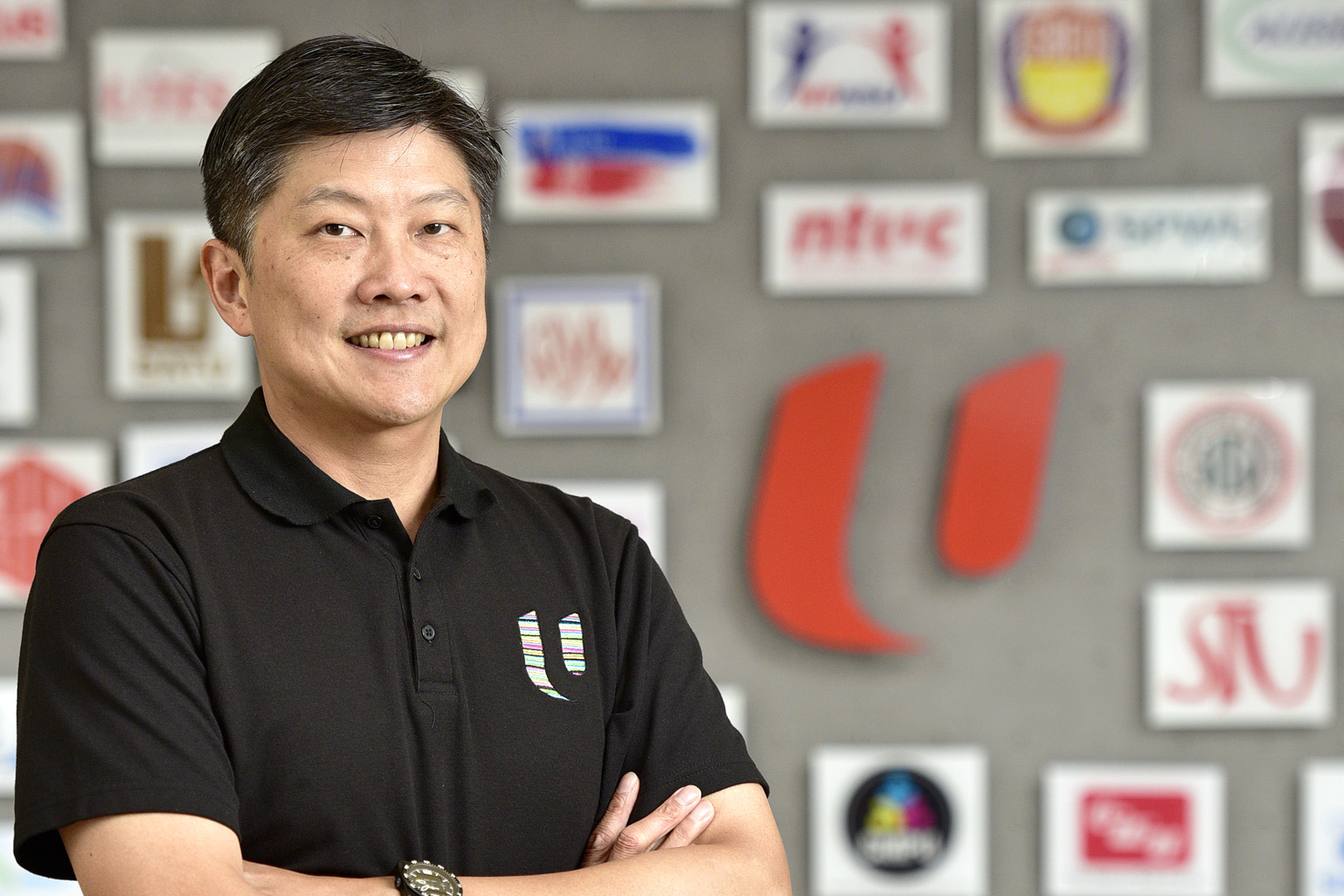NTUC's challenge: Being relevant to and representative of workers
Sign up now: Get ST's newsletters delivered to your inbox

ST PHOTO: DESMOND WEE
Labelling workers "blue-collar" or "white-collar" does not make sense because technological disruption affects workers across the board, said labour chief Ng Chee Meng.
Mr Ng, who took charge of the National Trades Union Congress (NTUC) on May 22, noted that it has traditionally aimed to represent rank-and-file workers, who used to make up the vast majority of workers in Singapore.
But today's workforce is almost split evenly between the rank-and-file and professionals, managers, executives and technicians (PMETs), he said in an hour-long interview with The Straits Times on Monday to mark his first 100 days as NTUC's secretary-general.
Moreover, the spread of the gig economy has made working life more precarious for PMETs, added Mr Ng, who is also Minister in the Prime Minister's Office.
"They may not receive medical benefits or CPF (Central Provident Fund) contributions, so when these workers reach middle age, they may well feel the pinch - they may not have the necessary money to pay for a house through CPF, and so on," he said.
"I am not talking about low-wage workers only. There are computer programmers that are in this situation, either by choice or because more and more companies are putting such employment terms on the market."
Senior PMETs, who are older than 40, are feeling anxious about their future too, Mr Ng said.
"They know that if they get retrenched, it will be increasingly difficult to get back into the market."
Amid such changes in the workforce, he said, the big question for NTUC is: How does it remain representative of and relevant to workers?
One way is by partnering pro-fessional associations to help workers with networking and job placements.
"Don't be surprised if you hear NTUC setting up more professional networks. We are already thinking about a Fintech Academy to provide training to PMEs, for there are more of them in this area," Mr Ng said.
"We will innovate at NTUC so we can become more and more relevant to PMEs even as we take care of the core of the Singa-porean workforce."
Mr Ng said that his first 100 days as labour chief have been rewarding as he has learnt a lot about workers' grievances as well as heartwarming stories from the labour movement.
"Going to the ground, having kopi chats with the union leaders and the workers, you can almost see the whole policy loop - how the things the Government does ultimately affect the citizens of Singapore," he said.
"So, in these 100 days, I have been able to see what we are doing well, and what are the areas where we need to continue working on."
For example, he said, more effort needs to be put in to address the plight of low-wage workers.
To this end, NTUC will continue to push for the Progressive Wage Model (PWM) to cover more low-wage workers across various industries, or come up with new ways to help them, he said. The PWM, which has so far been applied to the cleaning, landscaping and security sectors, specifies higher pay for workers as they upgrade their skills.
Mr Ng also highlighted that Singapore still has a group of workers who are paid a daily rate.
"They are dwindling in numbers, but we still have 600 to 700 cleaners in the Government," he said, adding that he was surprised by the size of this pool of workers. He hopes to find ways to help them upgrade.
As he reflects on his 100 days in NTUC and what needs to be done, Mr Ng said that he is filled with optimism.
"Singapore is in a good position. Our kids are coming out of the school system ahead of many other people in the world," he said.
"We have positional strength to seize the opportunities that disruptive technologies are bringing to the world."


